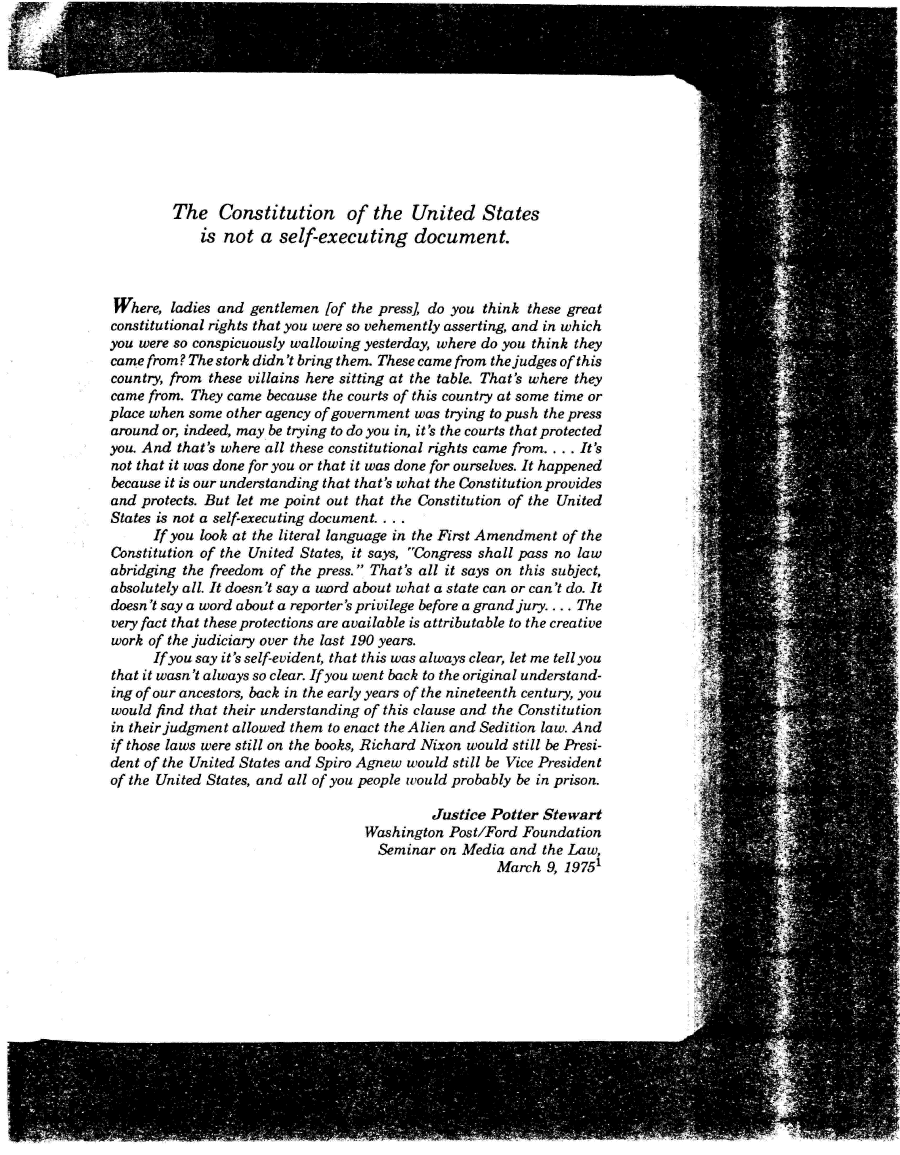|
The Constitution of the United States
is not a self-executing document.
Where, ladies and gentlemen [of the press], do you think these great
constitutional rights that you were so vehemently asserting, and in which
you were so conspicuously wallowing yesterday, where do you think they
came from? The stork didn 't bring them. These came from the judges of this
country, from these villains here sitting at the table. That's where they
came from. They came because the courts of this country at some time or
place when some other agency of government was trying to push the press
around or, indeed, may be trying to do you in, it's the courts that protected
you. And that's where all these constitutional rights came from. . . . It's
not that it was done for you or that it was done for ourselves. It happened
because it is our understanding that that's what the Constitution provides
and protects. But let me point out that the Constitution of the United
States is not a self-executing document. . . .
If you look at the literal language in the First Amendment of the
Constitution of the United States, it says, "Congress shall pass no law
abridging the freedom of the press." That's all it says on this subject,
absolutely all. It doesn't say a word about what a state can or can't do. It
doesn't say a word about a reporter's privilege before a grand jury.... The
very fact that these protections are available is attributable to the creative
work of the judiciary over the last 190 years.
If you say it's self-evident, that this was always clear, let me tell you
that it wasn't always so clear. If you went back to the original understand-
ing of our ancestors, back in the early years of the nineteenth century, you
would find that their understanding of this clause and the Constitution
in their judgment allowed them to enact the Alien and Sedition law. And
if those laws were still on the books, Richard Nixon would still be Resi-
dent of the United States and Spiro Agnew would still be Vice President
of the United States, and all of you people would probably be in prison.
Justice Potter Stewart
Washington Post/Ford Foundation
Seminar on Media and the Law,
March 9, 19751
|

